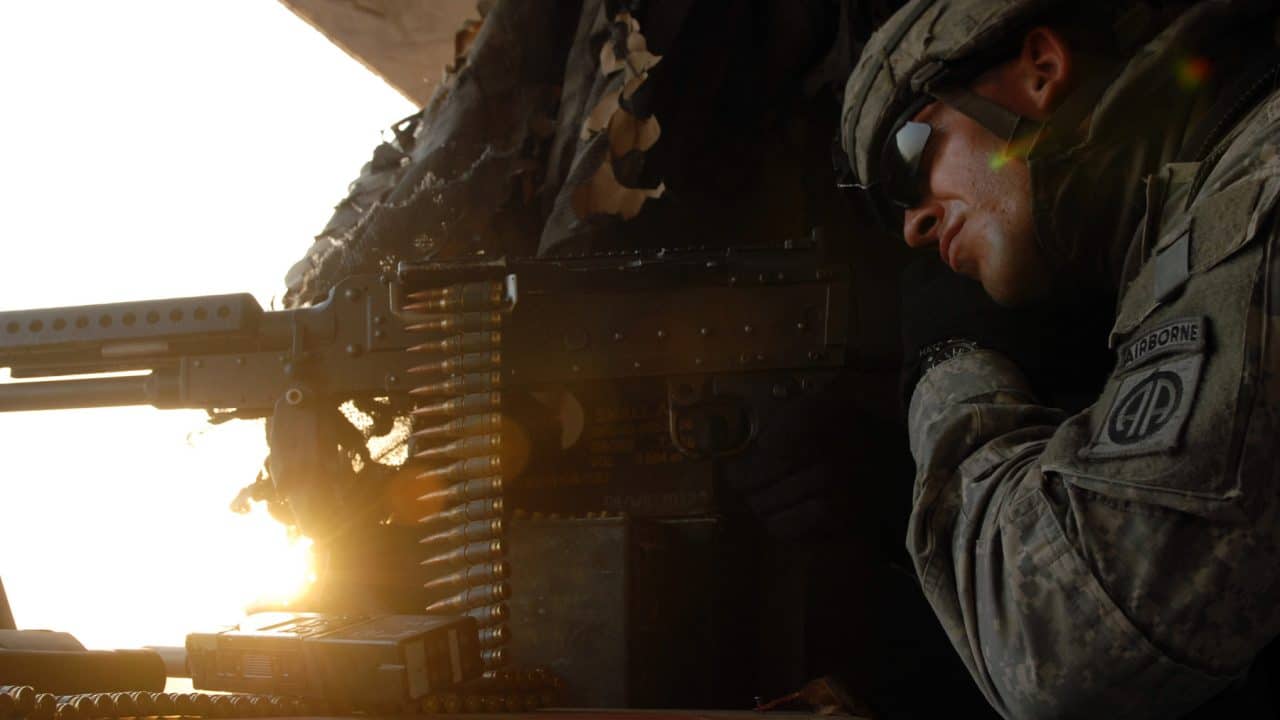by Sean Russel
Thanks to the GI Bill, college is the place a lot of veterans go after they finish their service. For veterans, it’s a time to grow like a normal person, but also a time to process what the hell just went down the last four or so years. That’s some trippy shit.
College for a young vet means navigating several minefields at once. You have to find a balance between completely blasting every last brain cell with drugs and alcohol and studying. All young people do this; that’s not just a veteran thing. You have to learn to stop ogling every young chick like an ex-convict just out of Pelican Bay. Life has been full of deployments and field time with a bunch of dudes. The one-night-stand, which used to be the only outlet for lovemaking to a young soldier (unless he gets married, a worse idea) is no longer the only avenue for seeking affection. It’s time to start dating.

Your first symptoms of Post-Traumatic Stress are likely surfacing as you find yourself startled by loud noises, nervous in crowds, and frustrated in traffic. This is fun stuff, the birthright of your service. Why go off to war if you don’t want to be a salty old man someday?
College also means bearing the brunt of liberal politics. Hear something enough times and it’ll stick. If you hear that a cause you fought for was corrupt and futile long enough, a terrible sensation may begin to take hold: shame.
Nothing has the corrosive effect of incorporating shame into your service. To start, it’s not like the public has been consistent in its support for the war. The public’s response to Global War on Terrorism is like a fickle date deciding on where to go to dinner: there is the retributive sentiment after 9/11, where I got to be a hero, the fervor of the public leading to the invasion of Iraq, where I got to be a stud, the almost immediate backlash of the Left, where I got to be a warmonger, then finally, the public’s current attitude which embraces the snarky Jon Stewart Liberalism, where I am relegated to pariah.
Any sense of heroism or righteousness in the GWOT has been co-opted by parody, the satire of Stephen Colbert, or Seth MacFarlane’s American Dad! Though the public has attempted to evolve from its shaming of Vietnam soldiers, the new, semi-genuine, “I support the troops, but not the war,” responses can have a much more insidious effect on eroding a soldier’s pride in service. We love the troops. Shucks, we sure are sorry your leader duped you into a criminal cause, and that you couldn’t find a job doing anything but the military in this evil capitalist empire. But thank you for your service, little fellah.
If a veteran looks for validation of his service in higher education he’s bound for a rude awakening. My education was at times miserable as I tried to make sense of things. At a small liberal arts college called Southern Oregon University, students reenacted war protests from the 60s in hopes of adding significance to their human experience: no, there wasn’t a draft, and no we weren’t regularly committing war crimes, yet the kids protested. This was frustrating. It’s not as though we could undo the damage we’d caused with our regime change. The protests then had the effect of undermining the noble goal of stabilizing Iraq. I wanted to say, “Look kids, we broke it, we bought it. We can’t just abandon all these people now.” But it’s not like you’re going to change any minds about supporting our efforts in Iraq.
More importantly, professors largely bombarded students with progressive liberal sentiment any time the war came up. One professor, after asking if there were any veterans in the room (I didn’t raise my hand), made the bold statement that any soldier who goes to war will be “forever wounded.” Phrases like Bush Lied, People Died, Blood for Oil, and Bring ‘em Home were commonplace. Not once did I hear a sensible reasoning for why we invaded Iraq, or if there were any appropriate exit strategies other than “Everyone out, now.” Explanations for our involvement in the middle-east vacillated between Bush either being an idiot or a criminal mastermind. Slowly creeping behind these sentiments, you’d get the impression that soldiers were either misled idiots or psychopathic warmongers.
Buy Me A Coffee
The Havok Journal seeks to serve as a voice of the Veteran and First Responder communities through a focus on current affairs and articles of interest to the public in general, and the veteran community in particular. We strive to offer timely, current, and informative content, with the occasional piece focused on entertainment. We are continually expanding and striving to improve the readers’ experience.
© 2024 The Havok Journal
The Havok Journal welcomes re-posting of our original content as long as it is done in compliance with our Terms of Use.



